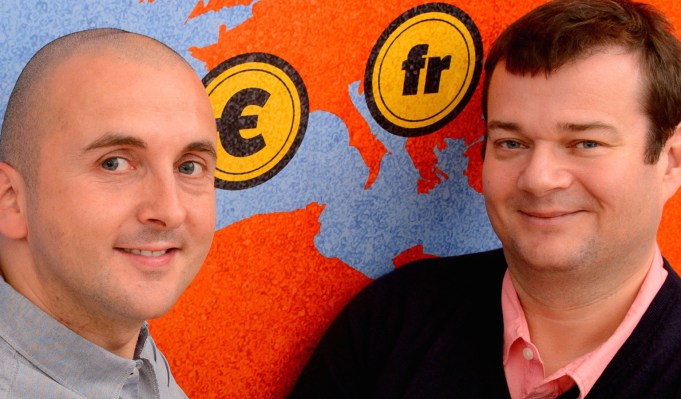More funding activity in the so-called peer-to-peer money transfer space. WeSwap, the London-based startup that helps travellers get a better exchange rate when changing currency in advance of a trip, has closed a decent-sized $7.5 million series A round, adding to the $2 million previously raised. IW Capital led the round, with participation from EC1 Capital and existing investors — while the new capital will be used to launch in new markets, increasing the number of currencies it supports.
WeSwap’s raise also comes at a time when a plethora of UK fintech startups, all of whom are challenging the banks and incumbents like Western Union in the money transfer space, have taken funding. The most profile of which is probably TransferWise, which most recently picked up an additional $25 million, adding Sir Richard Branson as a backer, along with existing investors, including Peter Thiel’s Valar Ventures.
Meanwhile, in March this year Azimo closed a $10 million series A round led by Greycroft Partners, and WorldRemit raised a hefty $40 million investment led by Accel Partners. Other European money transfer startups to have topped up their capital over the last year or so include Dublin-based CurrencyFair, which raised a further $2.5 million led by Frontline Ventures, and Lithuanian-based TransferGo, which raised a very modest €200,000 in funding to launch in the UK.
What potentially sets WeSwap’s proposition apart from other upstarts in the money transfer/currency exchange space is a focus on travel, rather than more directly targeting the remittance industry and money transfer in general. Claiming to match travellers in one country with those in another who need to exchange currency, like other so-called P2P money transfer offerings, the idea is that by cutting out the middle person, a better exchange rate can be offered.
In this case, WeSwap charges 1% on transfers, which it says is a more transparent model than offering 0% and then fudging the exchange rate, as some legacy competitors do. It’s also free to use if customers sign up and swap with people they already know.
Another interesting differentiator is the way exchanged funds are delivered to a customer. This comes via a WeSwap Prepaid MasterCard, rather than being deposited into a bank account. WeSwap currently operates in 6 currencies, which it says will expand to 16 by the end of the year.
What’s also interesting about all of these “P2P” money transfer offerings is that the P2P model is a slight myth — which, admittedly, I’ve done my fair share to propagate — because it relies on people in one country/currency wanting to exchange the same value in money with those in another. When this doesn’t match up, said companies trade currency on the existing money exchange market, with tiny margins as a result.
“If no other members of the community have an opposing currency need then WeSwap itself will step in and swap,” explains WeSwap on the matter.
That said, fully debunking the P2P money transfer myth is probably a post for another day.
